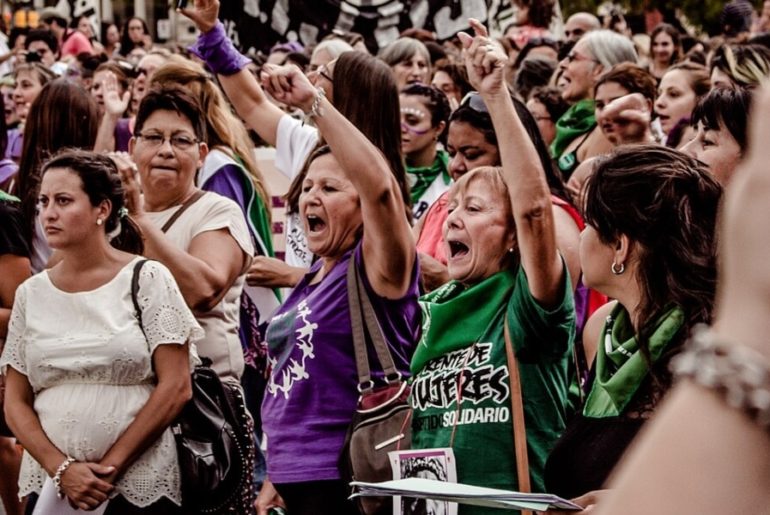A new report by the United Nation’s Economic Commission for Latin America and the Caribbean (ECLAC), revealed that the Coronavirus health crisis has been particularly hard for women around the world, especially in Latin America.
“The ongoing health crisis highlights the unfair social organization of care work in Latin America and the Caribbean,” the report said. “There is an urgent need to consider responses to care needs from a gender perspective, since, as the [ECLAC] has repeatedly demonstrated, it is women who, whether paid or unpaid, bear the greatest caregiving burden.”
The report stated that the international lockdown and school closures put more strain on women than their male counterparts. It also warned that these trends could have a lasting effect on gender disparity for Latin American women.
Why are women being hit harder than men by COVID?
“Based on what we know, I feel pretty confident to say that the crisis will exacerbate the gender gaps already present in Latin America, placing women in a more vulnerable situation,” Claudia Piras, lead social development economist at the Inter-American Development Bank, told Reuters. She added that even outside the house, women tend to be at bigger risks than men because of the type of jobs they hold.
“What we know is that women are over-represented in high-risk sectors such as retail, restaurants and hotels, which are especially vulnerable to social distancing measures and prevents the continuation of their work,” she said.
Normally, women and girls in Latin America already spend “three times as long as men” on unpaid domestic and care work each day. Working from home and the school closures have made the burden even heavier, especially for those in low-income households, where there are usually more dependents.
But work overload is not the only thing that Latin American women and girls have to worry about. There has been a worrying rise in domestic abuse cases since the lockdown orders started, with calls to domestic violence hotlines jumping 91% in Colombia, 36% in Mexico and 25% in Argentina. Experts worry that these numbers might be significantly higher, since less than 40% of survivors report the crime or seek help.

“Unless governments take much more decisive action and go beyond the rhetoric and really put forward policies targeting these particular groups of women, who were already in very bad circumstances, we are going to see a pretty bad backlash,” said Piras.
How Countries Should Address This
The World Economic Forum and the Inter-American Development Bank are working on a project called Closing the Gender Gap Accelerators in Latin America, which focuses on bringing together community and state leaders to close economic gender gaps in the workforce. Together, they identified five “musts” to deal with the gender divide brought on by coronavirus:
1. Addressing the burden of unpaid care work
As mentioned before, women take on a larger share of responsibilities when it comes to household chores, especially home care. The Accelerators insist that in order to prevent regression on gender equality, men have to start taking an equal share of responsibilities around the house. Some countries, like Chile and Bolivia, have even launched campaigns to promote to help break the stereotypical role of men in households.
2. Putting safety nets in place for the informal sector
Because so many women work jobs that often don’t provide health insurance and other benefits, they are susceptible to financial crises when encountering unforeseen money emergencies. Therefore, the Accelerators propose that more countries follow the footsteps of Chile, who included those informally unemployed in their monthly payments.
3. Making sure that women are well represented in the growth sector
Ensuring that women start to be part of less volatile business sectors is key to closing the gender gap in Latin America, the Accelerators said. Countries like Colombia have started putting systems in place that help introduce women to these industries.
4. Addressing gender-based violence
One in every three women in Latin America is a victim of gender-based violence. These transgressions make it harder to close the gender gap, and is something that has to be addressed immediately. Accelerators believe that countries must “adapt services to ensure women can access them while in quarantine” in case of a domestic violence scenario.
5. Lending a hand to female-owned small business
More than 72 percent of the women who are salaried or self-employed get their income from a small business. However, the pandemic has been particularly hard on small and medium businesses, which is why the Accelerators propose that governments give these businesses the tools to weather the financial crisis. It is extremely important to not only provide them with the financial help they need but also with skills training so they can better run their business. For example, a bank in Panama who forms part of the Accelerators is facilitating female business owners with financing and skill training.

